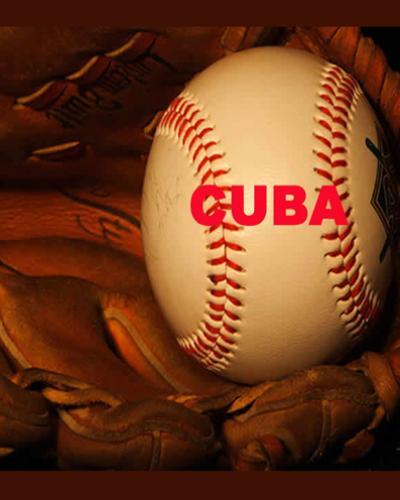Baseball
Ciego de Ávila dawned today as the undisputed leader of the 54th Cuban Baseball Championship, after leaving on the field runner-up Matanzas by a closed 3-2 margin on Monday.
The Avilanians' Los Tigeres managed to get the decisive run at the end of the 10th episode with the complicity of their opponents' mistakes, while credit corresponded to reliever Yunier Cano, who scored his 3rd victory to barely tolerate 2 hits in 4 innings.
Now the disciples of laureate mentor Roger Machado command the Table with 9 wins and 3 losses, closely followed by Industriales with 8-4, who beat 2-1 to Camagüey in a hard-fought clash on Monday led by 3rd baseman Lourdes Y. Gourriel's attack with 2 RBIs against the defeated Yormani Socarrás, with success for Jesús Balaguer and Alexander Rodriguez' 3rd rescue.
In other results, Artemisa won 6-4 to Sancti Spiritus, Las Tunas 5-0 to Isla de la Juventud, Villa Clara 7-6 to Mayabeque, Cienfuegos 4-3 to Guantánamo, and Santiago de Cuba 6-1 to Holguin.
Volleyball
Cuba roared past Guatemala to score an easy 25-14, 25-12, 25-10 victory for their 2nd win as they continue seeking one of the tickets granted by the II U-23 Pan-American Men’s Volleyball Cup for the WCH in 2015.
Every member of the host team came out to play. Therefore, the offensive was well balanced led by the opposite hitter Osniel Rendón, the only player who tallied a double-digit scoring, i.e 11 points.
Overwhelming was the lead by the winning team in spikes (44-15) and blocks (12-2); however, the Guatemalans had the advantage in services (4-3).
Rodolfo Sánchez, coach of the host team, explained that “in power, we played better than yesterday, but the team continued failing much, and it cannot be possible that an opponent with a lower game level makes fewer errors (16-26). We will have to work on each player’s responsibility and team work as they may not think individually.”
“The match was similar to yesterday. Including me, we played under pressure without any necessity. Errors are still our major weakness at the present time, but we hope to eliminate them. Today we were better at blocking and receiving”, stated the Cuban captain Lázaro Fundora.
The Cuban, Reider Lucas, coach of the Guatemalans, expressed: “We knew we were meeting the strongest, most experienced and solid team of the tournament and we wanted the boys to play without any pressure and they did it. They were able to enjoy the match and mainly get experience in a competition and teams of this level.”
The visitors' team captain, Gerardo Gonzalez, admitted: “We are honored to have played against a team like Cuba. We enjoyed meeting them; and while doing it, it was a great show and much more to confirm closely their top-level.”
Cricket
Though formerly barely known in Cuba, cricket is gaining its own space within the local sportive movement as it was recently showed in Havana.
The Caribbean is divided between baseball-playing countries with U.S. ties and cricket-playing islands that once belonged to the British Empire.
Nowhere is more baseball-crazy than Cuba, but even here, a tiny but passionate group of men is trying to win people over to cricket, baseball's slower-paced, more courtly British relative.
Mostly descendants of sugar-cane workers who migrated from other islands in the early 20th century, Cuba's cricket partisans subsist on homemade and donated equipment from the embassies of cricket-playing countries, and the local government support. They recruit players from the streets and teach them rules of the new sport, while exploiting baseball-honed skills such as batting and running bases.
Cuba has organized cricket in 6 of its 16 provinces, with 1,150 registered players throughout the country of 11 million, said Barbara Delarra, an official with Cuba's National Sports Institute.
Cricket is also part of the cultural identity of Caribbean migrant communities in Cuba, the descendants of some 250,000 workers from Jamaica, Dominica and other British colonies who moved to sugar towns in eastern Cuba where they attended Protestant churches, ate spicier food and played cricket.
"They kept a lot of their identity," said Jorge Giovannetti, chair of the Department of Sociology and Anthropology at the University of Puerto Rico and an expert on Caribbean migration to Cuba, who added that "they kept some of their diet and some of their religious heritage, and cricket is part of it as well."
Cricket is most deeply rooted in the eastern province of Guantanamo, home to many of Cuba's immigrant-founded communities, where cricket is frequently taught to children in after-school athletics programs, and despite the lack of standard equipment, they all are decided to maintain this tradition because it's beautiful to remember one's roots.
Without a national tournament, Cuba has amateur tournaments like one played on a Havana soccer field last month between 3 Cuban teams and 3 teams of students from cricket-playing countries like Pakistan and Sri Lanka.
Adithya Senavirath, a Sri Lankan studying at the Latin American School of Medicine, where foreigners receive free medical education, said he enjoyed playing against Cubans instead of the fellow foreign students he usually faced in cricket.
"The Cubans have skills, they're good bowlers," he said. "They lacking some technique, but they learn fast."


